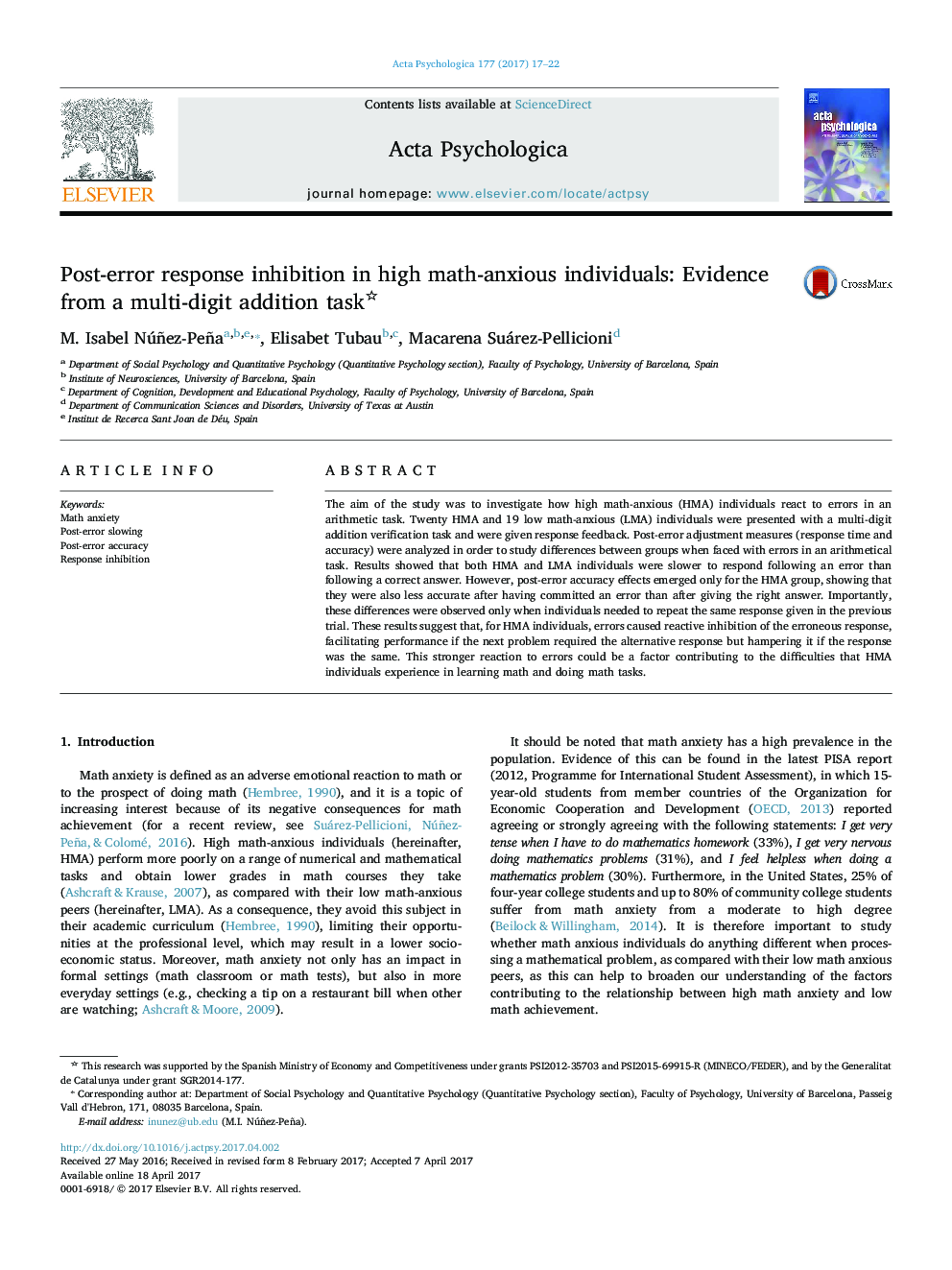| Article ID | Journal | Published Year | Pages | File Type |
|---|---|---|---|---|
| 5040267 | Acta Psychologica | 2017 | 6 Pages |
â¢High and low math-anxious individuals differ in their reaction to math errors.â¢Math-anxious individuals over-inhibit responses associated with previous errors.â¢Performance is not affected by previous error if a different response is required.â¢Error monitoring worsens performance due to behavioral inhibition.â¢Our findings give support to the inhibitory account of post-error adjustment.
The aim of the study was to investigate how high math-anxious (HMA) individuals react to errors in an arithmetic task. Twenty HMA and 19 low math-anxious (LMA) individuals were presented with a multi-digit addition verification task and were given response feedback. Post-error adjustment measures (response time and accuracy) were analyzed in order to study differences between groups when faced with errors in an arithmetical task. Results showed that both HMA and LMA individuals were slower to respond following an error than following a correct answer. However, post-error accuracy effects emerged only for the HMA group, showing that they were also less accurate after having committed an error than after giving the right answer. Importantly, these differences were observed only when individuals needed to repeat the same response given in the previous trial. These results suggest that, for HMA individuals, errors caused reactive inhibition of the erroneous response, facilitating performance if the next problem required the alternative response but hampering it if the response was the same. This stronger reaction to errors could be a factor contributing to the difficulties that HMA individuals experience in learning math and doing math tasks.
